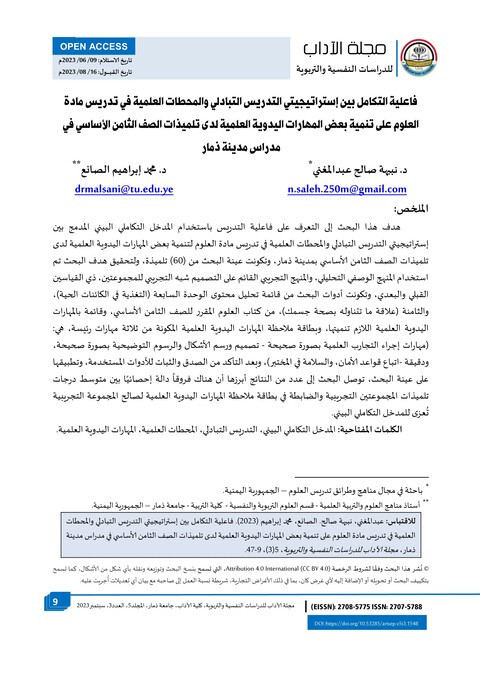
GCED Basic Search Form
Quick Search
You are here
Resources

This study aimed to identify the impact of integrating reciprocal teaching and science stations strategies in teaching science on developing some science hand skills among Eighth-grade female pupils in Thamar City. To achieve the study objectives, the descriptive analytical method and the quasi-experimental design of the two groups, with pre and post measurements, were used. The data collection tools included: a checklist for analyzing Unit 7 (Nutrition in Living Organisms), and unit 8 (The Relationship of what you eat to your Health) in the respective textbook; a checklist of science hand skills to be developed; and an observation sheet of the skills, covering three main skills: (carrying out scientific experiments correctly- designing and drawing shapes and illustrations correctly- following safety rules in the laboratory). After testing the validity and reliability of the tools, and administering them to the study sample, a number of results were revealed. More specifically, there were statistically significant differences between the mean scores of the pupils of the experimental and control groups in the science hand skills, attributed to the experimental group due to the integrative approach.
